Symposium #3 Grand Challenges in Data Science and Engineering in Healthcare: Digital Healthcare
| February 12, 2021 | 10:00 am – 2:30 pm EST |
| Moderator: Paolo Bonato & Jeff Palmer | |
|
|
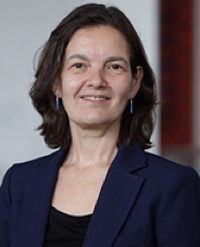
Dina Demner Fushman, M.D., Ph.D.
National Library of Medicine
Dina Demner-Fushman, M.D., Ph.D. is an Investigator at the National Library of Medicine, NIH. Her research objective is to develop artificial intelligence approaches that enable easy access to reliable health-related information. To that end, she leads research in the areas of natural language processing, data mining and multimodal information processing. Her research focuses on information extraction and textual data analysis, Electronic Health Record (EHR) data analysis, and image and text retrieval for clinical decision support and education. Her group has developed approaches to prediction of the course of disease, extraction of key information from text, document summarization, question answering and multi-modal information retrieval and question answering.
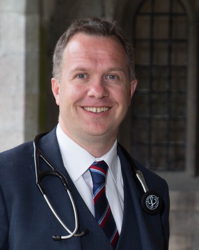
Derek O’Keeffe, MD, Ph.D.
National University of Ireland Galway (NUIG)
Prof Derek O’Keeffe holds dual first class honours degrees in Engineering (Gold Letter) and Medicine (Gold Medal). In addition he holds a Medical Doctorate and a Masters & PhD in Biomedical Engineering from the University of Limerick and National University of Ireland Galway. He was a Fulbright Scholar at Harvard, a Green Templeton Scholar at Oxford and is a graduate of the Endocrinology Clinical Fellowship at the Mayo Clinic, USA. As well as multiple academic publications, he holds biomedical patents and several international research prizes. He has done volunteer work in Ireland, USA, Ghana & Papua New Guinea. He has travelled in over 100 countries & was awarded The Outstanding Young Person of the World by Junior Chamber International. He is a Black Belt Taekwondo Instructor, Qualified Pilot, Advanced Scuba Diver & Triathlete. He has previously worked with NASA placing a sleep experiment onboard the International Space Station. In addition he has acted as Flight Surgeon for a NASA Extreme Environment Mission Operation (NEEMO) where they used digital health data to monitor crew health and make mission decisions. He recently completed the world’s first bi-directional care of a patient living in a remote community with drone technology. He currently works as a Consultant Physician (Endocrinologist) at University Hospital Galway (UHG) and is the Professor of Medical Device Technology at the National University of Ireland Galway.
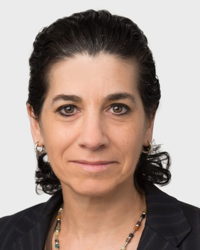
Deborah Estrin, Ph.D.
Cornell University and Cornell Tech
Deborah Estrin is a Professor of Computer Science at Cornell Tech where she holds The Robert V. Tishman Founder’s Chair, serves as the Associate Dean for Impact, and is an Affiliate Faculty at Weill Cornell Medicine. Estrin’s research activities include technologies for caregiving, immersive health, small data, participatory sensing, and Public Interest Technology.
Before joining Cornell University Estrin was the Founding Director of the NSF Center for Embedded Networked Sensing (CENS) at UCLA; pioneering the development of mobile and wireless systems to collect and analyze real-time data about the physical world. Estrin co-founded the non-profit startup, Open mHealth, and has served on several scientific advisory boards for early-stage mobile health startups. She is currently an Amazon Scholar (2019-present).
Estrin is an elected member of the National Academy of Engineering, National Academy of Medicine, and was chosen as a 2018 fellow of the MacArthur Foundation.
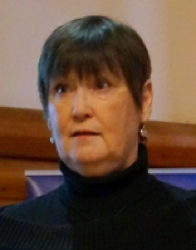
Wendy J. Nilsen, Ph.D.
National Science Foundation
Wendy Nilsen, Ph.D. is the Acting Deputy Division Director in the Information and Intelligent Systems Division of the Computer and Information Science and Engineering Directorate at NSF. She is also the lead Program Director in the Smart Health program. Her work has focused on the intersection of computing and human functioning. Her interests span the areas of sensing, analytics, cyber-physical systems, information systems, machine learning, artificial intelligence and robotics. She also serves as cochair of the Health Information Technology Research and Development working group of the Networking and Information Technology Research and Development Program and, serving on numerous federal technology initiatives. Prior to joining NSF, Wendy was at the National Institutes of Health.
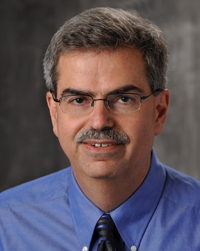
Thomas F. Quatieri, Sc.D.
MIT
Thomas F. Quatieri received the B.S. degree (summa cum laude) from Tufts University in Medford, MA, and the S.M., E.E., and Sc.D. degrees from the Massachusetts Institute of Technology (MIT) in Cambridge, MA. He is a Senior Member of the Technical Staff with MIT Lincoln Laboratory, Lexington, focused on speech and auditory signal processing and neuro-biophysical modeling with application to detection and monitoring of neurological, neurotraumatic, and stress conditions. He holds a faculty appointment in the Harvard-MIT Speech and Hearing Bioscience and Technology Program. Dr. Quatieri is an author on more than 200 publications, holds 12 patents, and authored the textbook Discrete-Time Speech Signal Processing: Principles and Practice. He is a recipient of four IEEE Transactions Best Paper Awards and the 2010 MIT Lincoln Laboratory Best Paper Award. He led the Lincoln Laboratory team that won the 2013 and 2014 AVEC Depression Challenges and the 2015 MIT Lincoln Laboratory Team Award for their work on vocal and facial biomarkers. He served on many IEEE technical committees and the IEEE James L. Flanagan Speech and Audio Awards Committee. He has also served on the editorial board of the IEEE Transactions on Signal Processing, and is currently an associate editor of Computer, Speech, and Language. He co-led the mHealth group on Monitoring COVID Patients and Clinical Personnel under the Mass General Brigham Center for COVID Innovation. He is a Fellow of the IEEE and a member of Tau Beta Pi, Eta Kappa Nu, Sigma Xi, ICSA, ARO, and ASA.
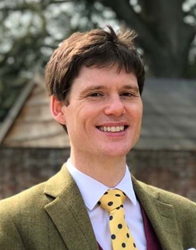
David Clifton, DPhil (Oxon)
University of Oxford
David Clifton is Professor of Clinical Machine Learning in the Department of Engineering Science of the University of Oxford, and Official Fellow in AI & Machine Learning at Reuben College, Oxford. He is a Research Fellow of the Royal Academy of Engineering, and a Fellow of Fudan University, China.
He studied Information Engineering at Oxford’s Department of Engineering Science, supervised by Prof. Lionel Tarassenko CBE, Chair of Electrical Engineering, previous Head of the Department of Engineering Science. His research focuses on the development of machine learning for tracking the health of complex systems. His previous research resulted in patented systems for jet-engine health monitoring, used with the engines of the Airbus A380, the Boeing 787 “Dreamliner”, and the Eurofighter Typhoon. Since 2008, he has focused mostly on the development of AI-based methods for healthcare. Patents arising from this collaborative research have been commercialized via university spin-out companies OBS Medical, Oxehealth, and Sensyne Health, in addition to collaboration with multinational industrial bodies.
Prof. Clifton holds a Grand Challenge award from the UK Engineering and Physical Sciences Research Council, which is an EPSRC Fellowship that provides long-term strategic support for “future leaders in healthcare”. His research has been awarded over 30 academic prizes; in 2018, he was joint winner of the inaugural “Vice-Chancellor’s Innovation Prize”, which identifies the best interdisciplinary research across the entirety of the University of Oxford.
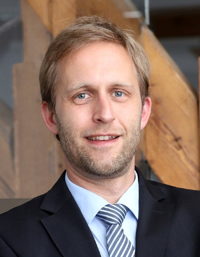
Bjoern Eskofier, Ph.D.
Friedrich-Alexander University Erlangen-Nuernberg
Dr. Eskofier studied Electrical Engineering at the Friedrich-Alexander University (FAU) Erlangen-Nuernberg (Germany). He did his PhD in Biomechanics in 2010 at the University of Calgary (“Application of Pattern Recognition Methods in Biomechanics”). In 2011, he became assistant professor for Computer Science in Sports (an endowed professorship of the adidas AG). In 2017, he became full professor for ‘Digital Support Systems in Sports and Health’ within the Heisenberg-program of the German Research Foundation (DFG).
He authored more than 200 peer-reviewed articles, submitted 5 patent applications, and started three spinoff startup companies. Him and his team also won several medical-technical research awards.
In 2016, he was a visiting professor in Dr. Paolo Bonato’s Motion Analysis Lab at Harvard Medical School. In 2018, he was a visiting professor in Sandy Pentland’s Human Dynamic Lab at MIT.
He is the representative of the FAU’s Central Institute for Medical Engineering, and closely connected to their Medical Valley and European Institute of Innovation & Technology for Health activities.
His current research interests are applied machine learning, data science, signal processing, simulation, human-computer-interaction, and sensor integration methods for wearable computing systems in human-centered studies with a focus on wellness, sports, and health care.
The purpose and motivation of his research is generating a positive impact on human wellbeing, be it through increasing performance, maintaining health, reducing injuries, improving rehabilitation, or monitoring disease.
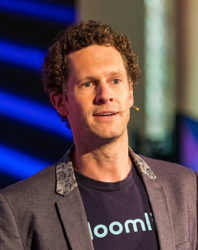
Julien Penders, M.Sc.
Bloomlife Inc
Julien Penders is co-founder and COO at Bloomlife, where he’s building the future of prenatal health using wearable technologies and predictive analytics. Julien is a passionate entrepreneur with 15-year experience in R&D and product development for the medical device and digital health industry. He led international teams through the development of wearable and digital health products covering hardware, software, analytics and clinical validation. He has (co-) authored over 60 papers and 14 patents. He has been a keynote or invited speakers at multiple events including TEDx and the Creativity World Forum. He serves on the IEEE Technical Committee on Biomedical Health Informatics and sits on the Program Committees for several international conferences. Julien was a 2004/2005 fellow of the Belgian American Educational Foundation. He holds a M.Sc. degree in Systems Engineering from University of Liege, Belgium (2004), and a M.Sc. degree in Biomedical Engineering from Boston University, MA (2006).
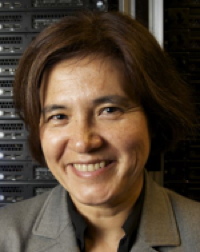
Lucila Ohno-Machado, M.D., MBA, Ph.D.
University of San Diego
Lucila Ohno-Machado, MD, MBA, PhD received her medical degree from the University of São Paulo and her doctoral degree in medical information sciences and computer science from Stanford. She is Associate Dean for Informatics and Technology, and the founding chair of the Health System Department of Biomedical Informatics at UCSD, where she leads a group of faculty with diverse backgrounds in medicine, nursing, informatics, and computer science. Prior to her current position, she was faculty at Brigham and Women’s Hospital, Harvard Medical School and at the MIT Division of Health Sciences and Technology. Dr. Ohno-Machado is an elected fellow of the American College of Medical Informatics, the American Institute for Medical and Biological Engineering, and the American Society for Clinical Investigation. She was one of the founders of UC-Research eXchange, a clinical data research network that connected the data warehouses of the five University of California medical centers. She was the director of the NIH-funded National Center for Biomedical Computing iDASH (integrating Data for Analysis, ‘anonymization,’ and Sharing) based at UCSD with collaborators in multiple institutions. iDASH funded collaborations involving study of consent for data and biospecimen sharing in underserved and under-represented populations.